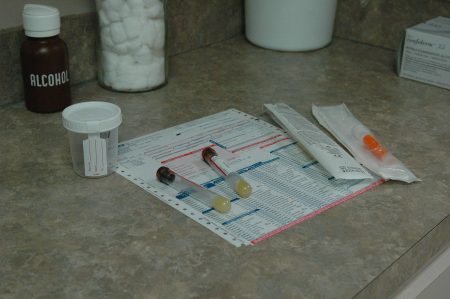Fatigue and How to Get Your Energy Back
Fatigue, feeling tired all the time, exhausted.
Doctors and other health professionals hear this one a lot.
It is one of the most common complaints reported to doctors.
Fatigue is not a disease or the issue-it is a symptom of something else going on in the body. The same should be noted if you have been diagnosed with Chronic Fatigue Syndrome (CFS). CFS is a cluster of symptoms but still tells you nothing about the underlying root cause(s).
The answer is not to drink more and more energy drinks as over time you will deplete your body even more and before you know it you will be drinking energy drinks and shots all day long just to function. I mention this because I see more and more teens, youth and young adults drinking these several times per day. Doing this is only going to make the problem worse down the road. I cannot stress enough the dangers of consuming these beverages on a regular basis. Read this post http://trufoodsnutrition.com/21-reasons-to-avoid-energy-drinks/
All of us have experienced fatigue that can last hours to days but usually we bounce back. The issue is when you always feel fatigued, maybe all day long day after day, or have crashes during the day. Or when fatigue doesn’t even describe how you feel any longer-instead you are so exhausted you can barely function
Some Questions to Ask Yourself to Help Identify Your Fatigue Root Causes
While fatigue is very common, identifying why you are fatigued is often not so easy. Ask yourself these questions to help you start to identify your fatigue causes
Do you get fatigued at the same time every day?
Does your fatigue coincide with menstrual cycles?
Do you have constant fatigue, every day and can’t do the things you want to do/used to do?
Is you fatigue recent?
Is it combined with other symptoms such as weight gain/loss, illness, joint pain, brain fog or depression?
Did you recently change your diet?
Do you think “I can’t wait to get through the day and go to bed”
What in your life changed when the fatigue started?
Did the fatigue come on suddenly or gradually?
Did the fatigue coincide with anything else (major stressor in life such as moving to a new home, a divorce, loss of loved one? new baby)
Are there changes in your body at onset of fatigue or prior to the fatigue such as changes in elimination, changes in sleep, digestive issues, joint pain issues and so forth.
Now that you have thought about the questions above, Let’s look at some of the more common causes of fatigue:
Fatigue Causes
(some of the more common root causes, this is not an exhaustive list)
- Hypothyroidism (subclinical too) http://trufoodsnutrition.com/hypothyroidism-causing-symptoms/
- Hashimoto’s
- Fibromyalgia
- Chronic fatigue syndrome
- Celiac disease
- Hormone imbalances
- Menopause
- Low iron
- Low B12 http://trufoodsnutrition.com/b12-could-this-be-causing-your-depression/
- Disrupted sleep, insomnia, sleep apnea
- Blood sugar dysregulation http://trufoodsnutrition.com/blood-sugar-and-your-mental-health/
- Candida and other gut pathogenic infections http://trufoodsnutrition.com/candida-and-your-symptoms/
- Cortisol imbalances/adrenal dysregulation
- Chronic stress http://trufoodsnutrition.com/foods-to-eat-when-stressed-and-anxious/
- burnout http://trufoodsnutrition.com/burnout-9-simple-ways-to-prevent-it-from-happening-again/
- other underlying, undiagnosed autoimmune disorder
- Food Sensitivities
- Intestinal permeability/Gut dysbiosis/disrupted microbiome http://trufoodsnutrition.com/leaky-gut-syndrome-what-it-is-and-what-causes-it/
- Being overweight
- Chronic infections, getting sick with colds, viruses frequently
- Change in your diet
- Recovery from surgery, illness, chemo, cancer, radiation
- Mast Cell Activation syndrome http://trufoodsnutrition.com/mast-cell-activation-syndrom-the-syndrome-with-random-symptoms/
- IBS, IBD or gut disorders such as gastroparesis
- Weight loss surgery
- Diet high in sugar, diet high in refined carbs (Standard American Diet, fasts food diet)
- NAFLD (non-alcohol fatty liver disease)
- Heavy alcohol use, alcoholism
- Lyme disease http://trufoodsnutrition.com/lyme-disease-and-herbs-that-can-help/
- Poor functioning detox pathways
- Medications (ie:statins since they deplete CoQ10)
- Mitochondrial dysfunction http://trufoodsnutrition.com/fatigue-depression-and-brain-fog-could-be-related-to-mitochondrial-dysfunction/
- Overtraining in your athletic pursuit
- Chronic mild dehydration
- TBI, head injury (even mild) http://trufoodsnutrition.com/diet-and-supplements-that-you-need-for-a-head-injury-concussion/
Some of the above are more obvious and simpler than some others and therefore you may be able to rule out and figure out your root cause(s) on your own.
But if the fatigue continues with all the positive changes you are making, if you struggle to get out of bed in the morning, if it takes everything in you just to do daily tasks such as making dinner and doing the laundry, then more than likely you will need to look a bit deeper.
If You Have Fatigue,
Where Do You Start to Try to Figure Out Your Root Cause?
- First stop and think about what has been going on-when did the fatigue start? Does is come at only certain times in your menstrual cycle, are you going through menopause, have you been exercising more, have you been cutting back on sleep, have there been new stressors in you life-often times if we look closely, we can identify the root cause. It may also be helpful to keep a short journal noting when you have energy and when you are tired
- Get basic lab work done: This can help identify some of the common culprits such as hypothyroidism, Hashimoto’s, celiac disease, low B12, low iron, NAFLD to name a few. Be sure to describe and stress to your health care provider the fatigue you have been feeling and how it is impacting your life so that they know the tests that should be ordered for you.
- Keep a Food Journal: for a week write down everything you are eating and drinking. I mean everything! That goes for the piece of candy from the co-workers candy jar, the handful of your child’s French fries….and everything in between.
- If the culprit isn’t identifiable from basic lab work, food journal and taking a look at what is happening in your life, then it may be time for further testing. I use the Great Plains Lab Food Sensitivity Test and the GI MAP test (to look for pathogens) as good starting places after seeing basic lab work, the food journal and taking a very in-depth intake. You may also benefit froma salivary cortisol test. Suggest autoimmune testing to your doctor. If still nothing shows up, then we may need to look deeper such as heavy metal toxicity, mold toxicity, and/or more testing for autoimmune conditions, dependent upon what other signs and symptoms you are having.
The Basics For Increasing Energy
Here are some basic steps that anyone can take if they are feeling fatigued.
- Stop consuming energy drinks: While these may help you to push through your day in reality, they are just a crutch and loaded with chemicals and sugars that you don’t need.
- If sleep is an issue, start to look at your bedtime routine-turn of all your gadgets an hour before bedtime and the hour before sleep, have an unwinding routine that helps you relax and turn off your mind. You may need additional short term supplemental support at bedtime such as to help stop a racing mind or if your cortisol is too high at bedtime. If you wake up at night and cannot fall back to sleep, this can be a blood sugar or a liver issue.
- Balance Blood Sugar: This along with eating the SAD is often the most common reason that I see for fatigue. Don’t do intermittent fasting if your diet is filled with processed foods. Instead work on eating whole food, nutrient dense diet instead. Start the day off right for an energy fueled day. Eat a breakfast rich in protein and fats, not processed carbs and sugar.
- Support your immune system and microbiome to avoid infections and illness. Consider adding in a high -quality probiotic. I use and prefer Megaspore from Microbiome Labs.
- Get Tested! As I said, start with some basic blood work. Then if everything comes back normal, get checked for gut infections. If you have any gut issues, address these first, such as candida, THEN address gut healing. Many people just add in what they need to do to get rid of pathogens, fungal infections and bacteria and stop there. This is a mistake! Afterwards, it is important to heal and support the gut as well. Also get tested for food sensitivities. You may require further testing such as cortisol testing, mold testing and for autoimmune conditions for example.
- Support Mitochondrial Health: Especially if you have already been diagnosed with CFS, you want to look at mitochondrial health. Almost every cell in your body have mitochondria and some cells have more depending on your energy production. For instance, your heart muscle and other muscles in your body have many mitochondria. Your mitochondria produce ATP via the Krebs cycle. This process underlies all of the energy production in your body. If your mitochondrial function is poor you are going to feel tired. Mitochondrial function can decline depending on hormonal imbalances or infections for instance. Aging, certain medications, heavy metal toxicity and excess alcohol intake can also lead to mitochondrial dysfunction. For mitochondrial support I like to add in ubiquinol or a Product from Systemic Formulas called ENRG. For more information on how to support your mitochondria, read this article http://trufoodsnutrition.com/fatigue-depression-and-brain-fog-could-be-related-to-mitochondrial-dysfunction/
- Eat a whole foods diet: Try to do this much of the time. Most of us think we eat healthy but I have found after looking through many food logs is that you are eating a balanced dinner much of the time but the rest of the food in your diet is processed. So no, this is not healthy eating. I encourage you to start adding more whole foods into the diet, start cooking at home and eat out less often, stop buying prepared foods. You will notice an increase in energy from the nutrients that you are providing to your body. If you need quick energy/quick “pick me up” try fruit instead of a cookie or donut or candy bar. Otherwise, add in 15-20 grams of protein at meals, around 7-10 grams if you need a snack, as it will take more time to be used as energy but will keep energy production more constant.
- Get some fresh air: Even if it is only 10 minutes per day. Just getting outside, taking a few deep breaths and enjoy being outside. This is not the time to look at your phone. Just enjoy the sun on your face, the sounds and smells of being outside. If you can add some movement, a short walk, even better. When tired, just the act of a walking can awaken and energize you. If you are able to get outside in the morning right after you wake and when the sun is up, this can stimulate your morning cortisol. You want your cortisol to be higher in the morning-it helps you to get up and go.
- Address the stress: I understand that often there is nothing we can do about the stress in our lives, that we have to deal with it but how the stress affects you is another story. Stress can deplete you of nutrients, cause sleep disturbances, cause sugar and carb cravings and so forth so it is critical to support your body when under stress. Stress can lead to debilitating fatigue, no doubt about it! I like to add in Adaptogenic herbs in supplement form, drink Tulsi tea, and add in some quiet time in nature.
- Do This First Thing in the Morning: hydration is critical after your overnight fast. Drink 8 to 16 ounces of water first thing in the morning. Not after your coffee, not when you get to work but very soon after you wake up. This will hydrate you at the cellular level and will energize you. The majority of us are walking around mildly dehydrated and even this mild dehydration can cause chronic fatigue.
- Get morning sunshine: sun exposure prior to 10 a.m. can actually increase your melatonin production at bed time to help you get a restful nights sleep.
Bottom Line
Fatigue is not an illness but a symptom of underlying issues. The key is to identify your causes for fatigue and address them so that you can get your life back. If you need support trying to figure out what is causing your fatigue, please call or email me to set up a consult. karen@trufoodsnutrition.com 303-522-0381
Sources
Bauman, E. & Friedlander, J. (2015) Foundations of Nutrition. CA: Bauman College
Haas, Staying Healthy with Nutrition. (2006)The Complete Guide to Diet and Nutritional Medicine. CA: Celestial Arts





Leave A Comment
You must be logged in to post a comment.